[India] Chart of the Month March 2025
- Release date: Mar 31, 2025
- 2216 Views
Over the past decade, India’s consumer market has undergone significant transformation. One of the most notable changes has been the growing access to and evolving perception of international brands.
To understand the influence of a brand’s country of origin on consumer choice, we asked two key questions:
which country’s brands consumers want to buy, and what kind of image they associate with brands from different countries.
The results below show the top five countries whose products or services consumers would most like to purchase or use.
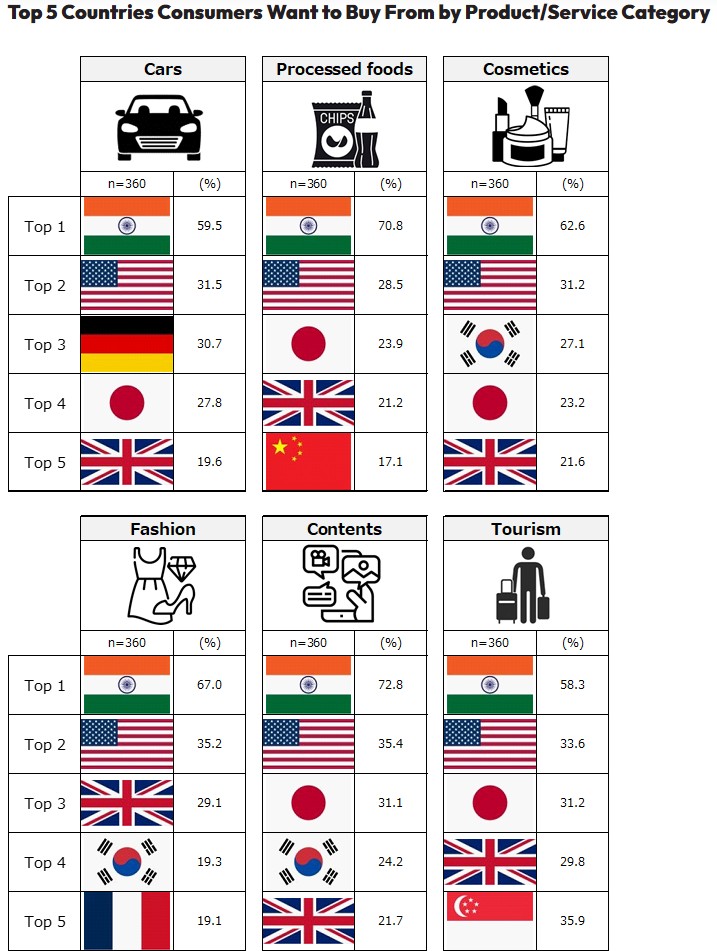
"Note: The countries to be shown were India, Japan, South Korea, China, Hong Kong, Taiwan, Singapore, Malaysia, Thailand, Vietnam, Indonesia, USA, Austria, New Zealand, France, Germany, and United Kingdom."
Strong Preference for Domestic (Indian) Products and Services
India ranked first in all categories, indicating a strong trust in local brands and a deep sense of pride in its own culture. Especially in "Processed Foods" (70.8%) and "Contents" (72.8%), India far outpaced other countries, showing a clear tendency toward local choices in areas closely tied to daily life.
United States: Strong Second Across All Categories
The United States consistently ranked in the Top 2–3 across all categories, regardless of product or service type. This highlights the high level of trust and admiration for American brands and the country itself. Its global influence and high brand recognition likely contribute to this strong presence.
United Kingdom: Consistently Appearing in the Top 5
The United Kingdom was also in the Top 5 across all categories, recognized as a country with reliable brand strength and trustworthiness. While it did not dominate any specific category, its overall balanced evaluation is notable.
Japan and South Korea: East Asian Countries with Steady High Ratings
Both Japan and South Korea appeared in the Top 5 in multiple categories, reflecting stable recognition of East Asian brands.
- Japan received particularly high ratings in categories such as "Cars" and "Processed Foods," reflecting strong trust in industrial products and quality.
- South Korea, on the other hand, was highly rated in cultural categories such as "Cosmetics," "Contents," and "Fashion," likely reflecting the recent global popularity of Korean culture.
In past surveys conducted by our company, South Korea did not rank this highly, suggesting a notable shift in consumer preferences in recent years.
European Countries Strong in Specific Categories
European countries such as Germany (in Cars) and France (in Fashion) maintained strong brand images in specific areas. These associations are linked to traditional industries and national reputations, and their expertise in these fields appears to leave a strong impression on consumers.
Next, we examined the brand image associated with each country.
One of the most notable findings is that India and China stand out with brand images that differ significantly from those of other countries. (For visual clarity in the chart, countries other than India and China are shown in the same colour.)
In particular, India received scores equal to or higher than other countries across nearly all image attributes—except for “Premium” and “Luxury.” This reflects the strong confidence Indian consumers have in domestic brands.
By contrast, China was rated relatively high only in “Low-cost,” while its scores in other image attributes tended to be comparable to—or lower than—those of other countries.
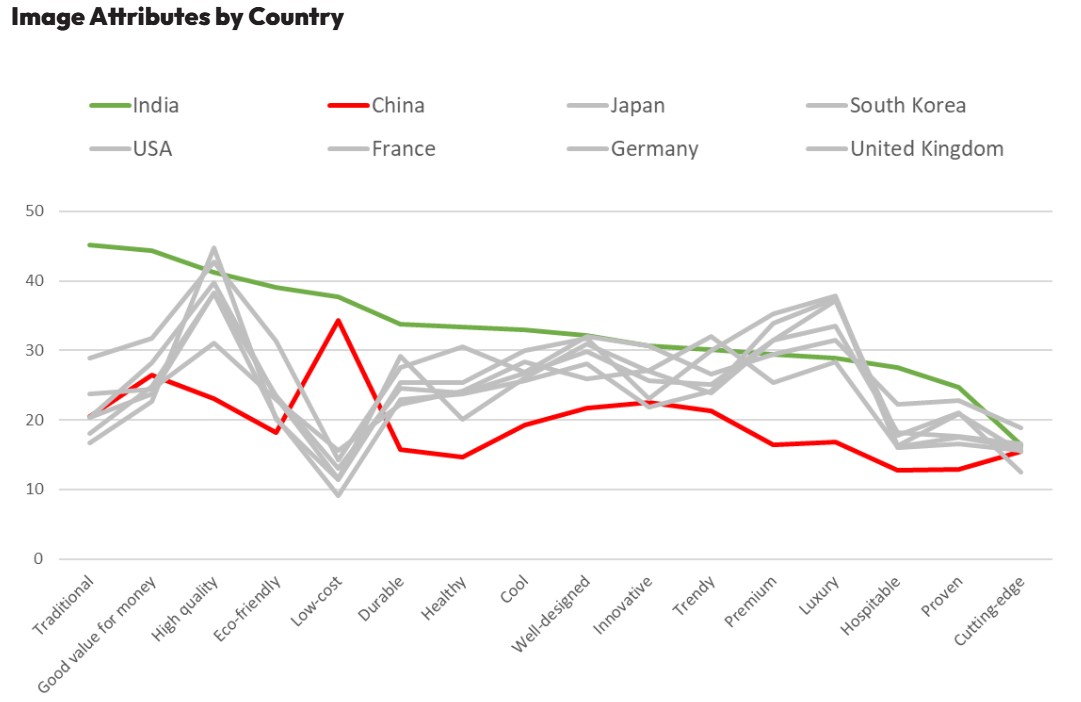
To understand the characteristics associated with each country, we identified the top five brand image attributes for each.
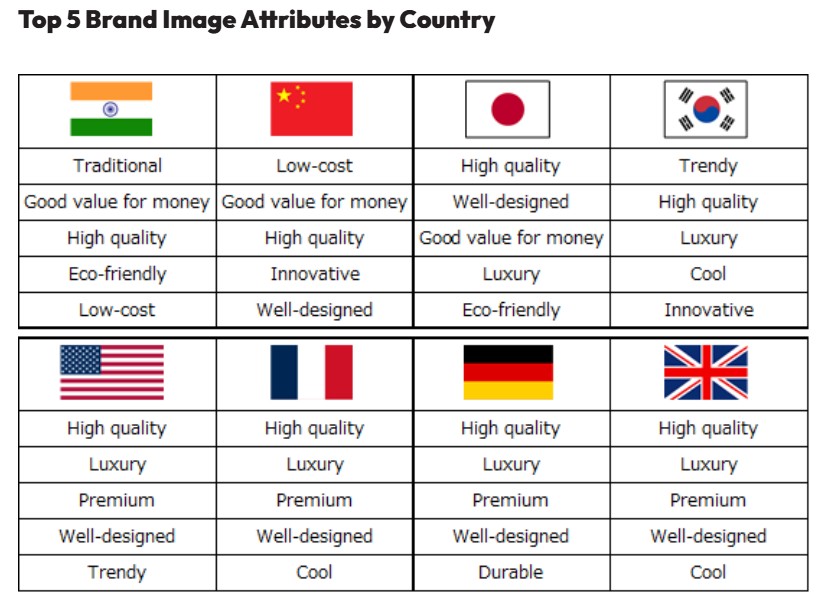
For Indian brands, the top five include attributes such as “Traditional,” “Good value for money,” and “High quality.”
The attribute “Good value for money” also appears in the top five for both China and Japan, indicating that value-oriented evaluations are concentrated in Asia. This suggests a strong emphasis on practicality and rational decision-making among consumers in the region.
In contrast, emotionally driven attributes such as “Premium,” “Luxury,” and “Cool” are predominantly associated with Western countries, reflecting a brand evaluation based not only on reliability but also on status and lifestyle appeal.
Among the four Asian countries, only South Korea includes “Trendy” and “Cool” in its top five, giving it a brand image closer to that of Western nations. This likely reflects the growing global popularity of Korean culture in recent years.
Finally, a correspondence analysis was conducted to understand the relative positioning of each country.
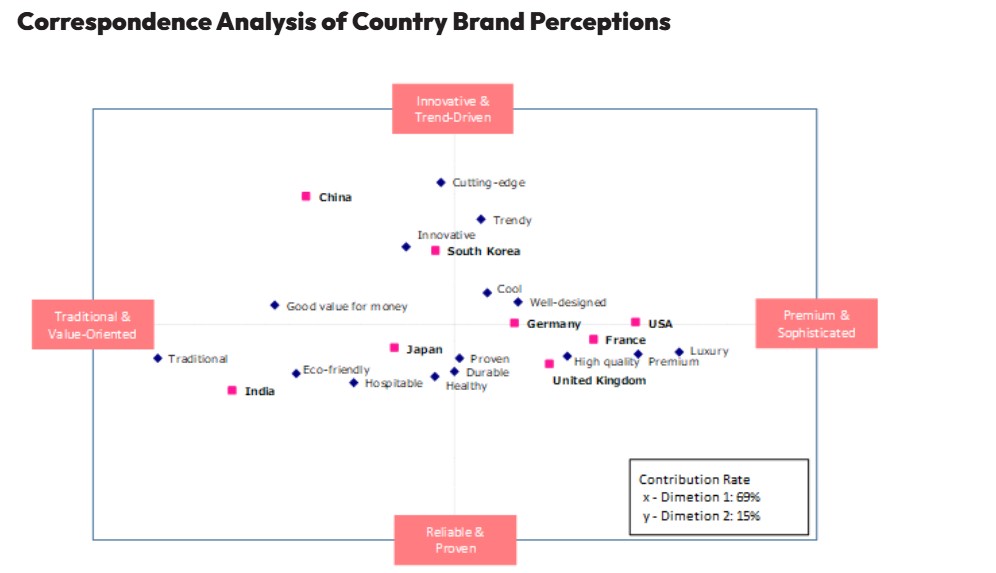
X-axis (Dimension 1 – Contribution Rate: 69%)
Traditional & Value-Oriented ←――――→ Premium & Sophisticated
- Countries on the left side (e.g., India, partially Japan) are associated with values such as tradition,
cultural depth, and affordability.
- Countries on the right side (e.g., USA, UK, France) are associated with luxury, refined design, and
premium quality.
Y-axis (Dimension 2 – Contribution Rate: 15%)
Reliable & Proven ←――――→ Innovative & Trend-Driven
- Countries in the lower area (e.g., Japan, UK, Germany) are associated with reliability,
durability, and health-consciousness.
- Countries in the upper area (e.g., China, South Korea) are associated with innovation, trendiness,
and cutting-edge appeal.
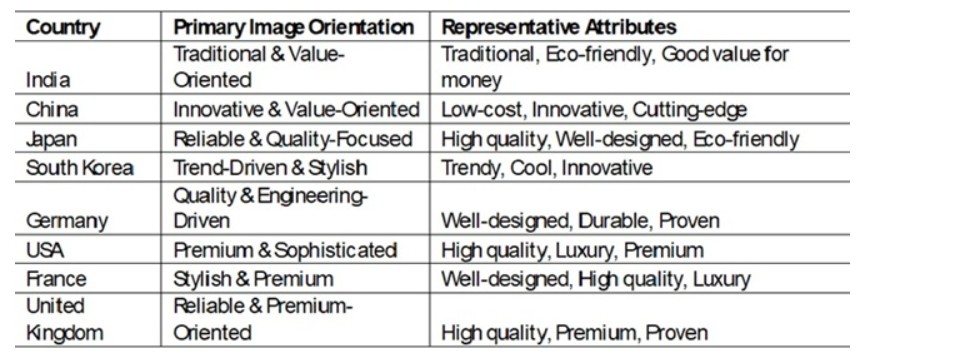
[INTAGE Monthly Tracking Survey]
Area: Delhi, Mumbai and Bangalore
Target: Male and Females aged 18-44 years old
Methodology: Online Survey
Sample size: 360 (Equally distributed by area, gender, and age)
Timing of survey: Last week of each month
The original text is here
-
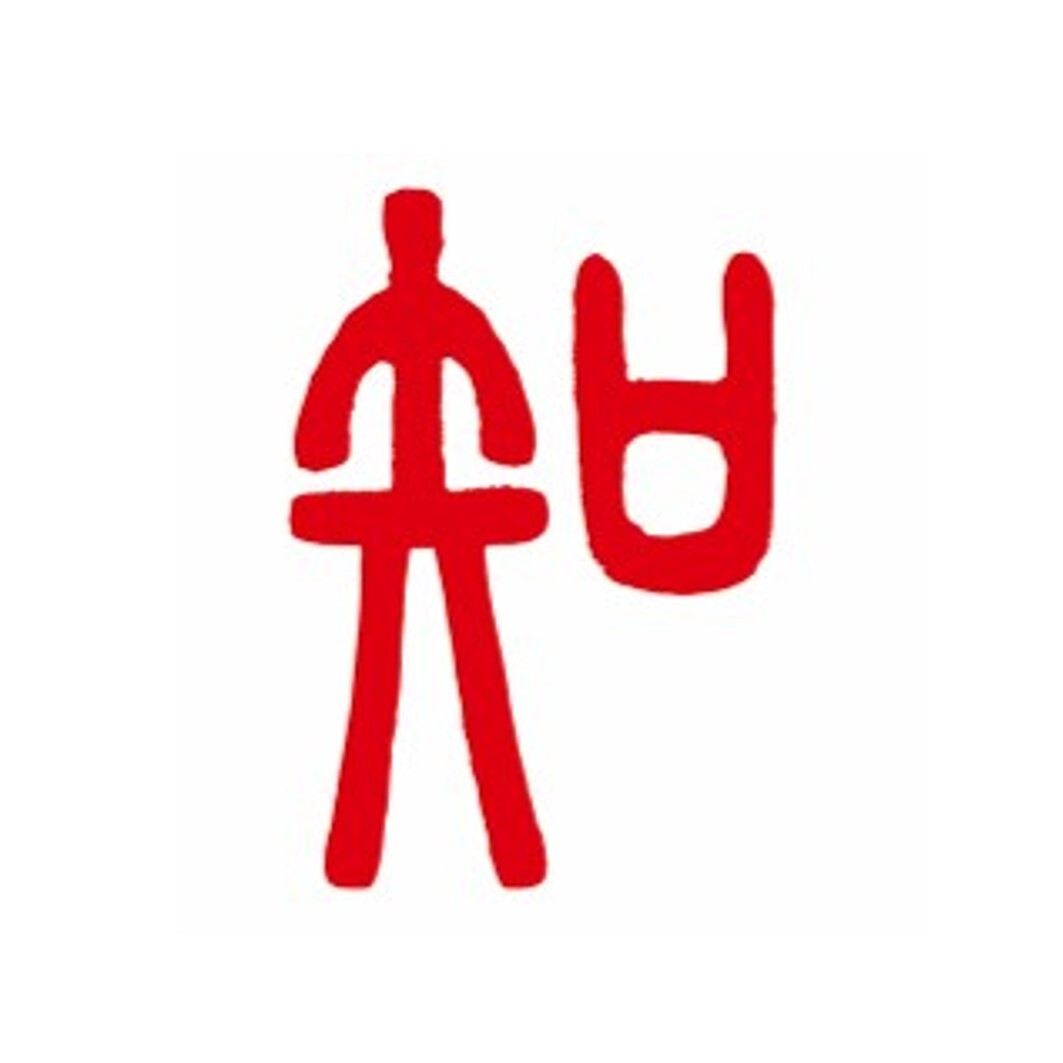
Author profile
Intage India
***
-

Editor profile
Chew Fong-Tat
***
 Global Market Surfer
Global Market Surfer CLP
CLP